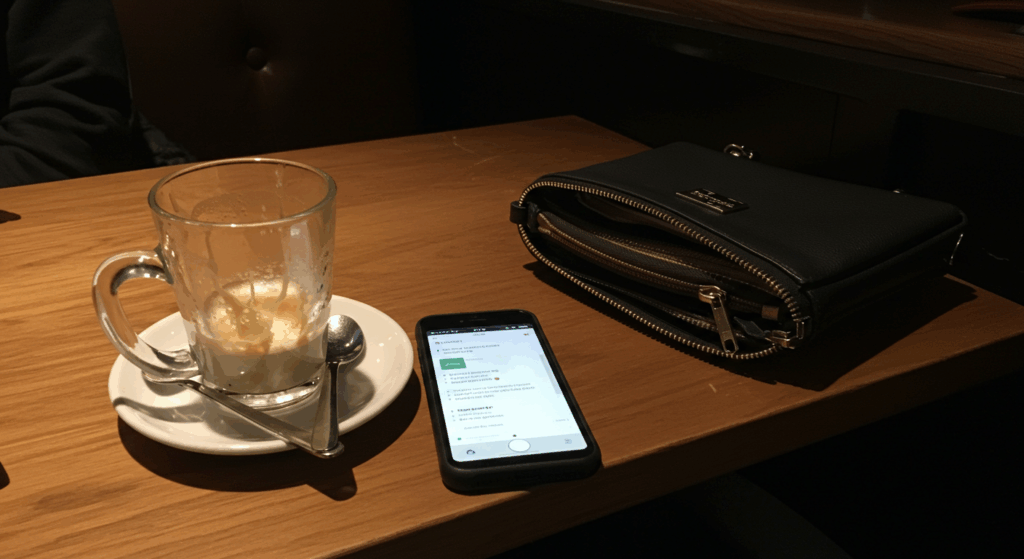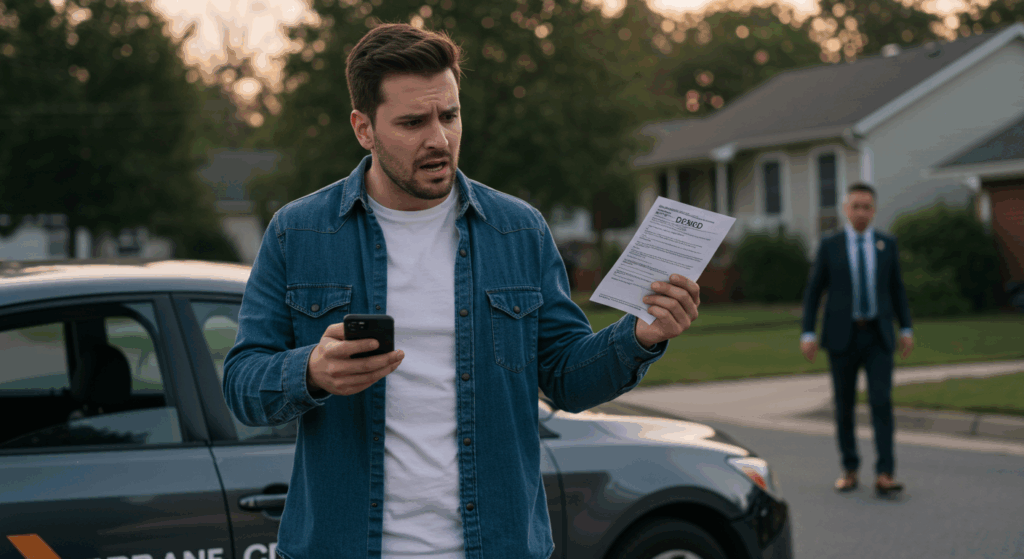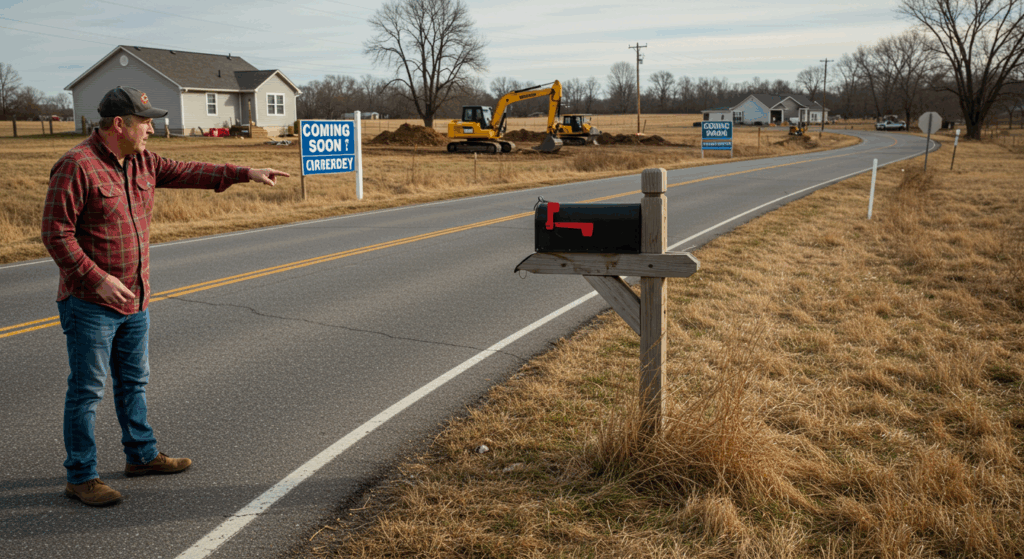She woke up sick, confused, and with no memory — her clothes were changed, her stomach empty, and no trace of what happened. Was she drugged — or assaulted?
- 1. I Woke Up With No Memory, Vomiting, and Two Pairs of Underwear — The First 10 Minutes
- 2. The Normal Day That Led to Nowhere
- 3. Could This Be Drugging? Why ‘I Don’t Remember’ Is a Red Flag
- 4. What You Must Do Immediately — Even If You’re Unsure
- 5. ER Visit Without Insurance — What It Really Costs and Covers
- 6. When Clothes Don’t Match the Memory — Signs of Possible Assault
- 7. How People React — and What They Should Never Say to You
- 8. What I Learned — and What You Should Do If It Happens to You
1. I Woke Up With No Memory, Vomiting, and Two Pairs of Underwear — The First 10 Minutes
At exactly 4:07 AM, I woke up in my bed with a jolt. I had this intense wave of nausea and barely made it to the bathroom before vomiting. The taste was metallic and sour. My head spun, and my skin was clammy.
Then I looked down and noticed something strange. I was wearing two pairs of my own underwear.
It was like waking up from a dream, except the dream had no content. Just… void. Silence. The last memory I had was from around 2 PM the day before. I was leaving work, texting my friend that I’d meet her for coffee downtown. I remember getting on the bus. I remember a dull headache as I leaned my head against the window. And after that?
Nothing.
No memory of meeting my friend. No memory of coming home. No memory of changing clothes or why I’d throw up.
I wasn’t drinking. I wasn’t on drugs. I didn’t hit my head. I’m 22, generally healthy, on birth control — that’s it. No mental health diagnosis, no history of seizures or trauma. Just this black hole where 10 hours of my life should be.
“When you wake up and your body feels like it’s lived a day you don’t remember — that’s not just scary. That’s a warning.”
For those first 10 minutes, I didn’t know if I had been drugged, attacked, or had some medical crisis. All I knew was that something was wrong, and the way my body felt confirmed it.
First 10 Minutes Response Map

2. The Normal Day That Led to Nowhere
The day started like any other. I went to work at my usual shift. There was nothing particularly stressful — no fights, no mental breakdowns, no skipped meals. I left the office around 2PM, just like I planned, texting my friend: “Heading downtown. Let’s grab that latte.”
I hopped on the 19 bus. I remember the driver greeting me. I remember the chill of the seat under my jeans, and the dull headache forming behind my eyes. Not a migraine, not sharp — just… there.
That’s it. That’s the last thing I can recall.
“The scariest part of memory loss isn’t what you forgot. It’s the fact that your brain forgot how to remember.”
For hours after I woke up at 4AM, I tried to rebuild my timeline.
Did I ever meet my friend? Was I drugged on the bus?
Did someone walk me home? Did I wander the streets blacked out?
My wallet was intact. My phone had 14% battery. My bag was zipped.
I had no visible injuries.
So why did my body feel like it had survived something?
And why was I wearing two pairs of underwear?
“Something happened to me. But I don’t know what. And that’s the part eating me alive.”
I began searching my texts, checking Uber, my transit card, my call log.
No outgoing calls after 2:12 PM.
No ride-sharing activity.
No texts after “Heading downtown.”
Like my life was paused.
And what terrifies me is, maybe I did meet my friend.
Maybe I laughed. Maybe I sat at a cafe. Maybe I told someone something.
And it’s all gone.
Wiped clean.
Reconstructing a Lost Day: How to Investigate a Missing Timeline

3. Could This Be Drugging? Why ‘I Don’t Remember’ Is a Red Flag
When I woke up at 4AM, vomiting and confused, one of my first thoughts was — could I have been drugged?
It felt too extreme to say out loud at first. I didn’t go to a party. I wasn’t drinking. I didn’t take anything. But still, the symptoms were there: memory loss, nausea, altered clothing, and a feeling of mental disconnection that wasn’t like anxiety or exhaustion. It was like someone had stolen a chunk of time out of my life.
What I didn’t know at the time is that symptoms like mine — especially sudden amnesia with physical after-effects — are classic signs of drug-facilitated assault.
And they’re far more common than we talk about.
“You don’t have to be in a club to get drugged. All it takes is one moment of distraction. One person with bad intent.”
People imagine drugging as something that only happens at loud parties or dark bars. But the reality is far quieter — and often, more terrifying. You could be drugged at a coffee shop, on a bus, or even while walking in public.
Substances like Rohypnol, GHB, and Ketamine can cause blackouts, vomiting, dizziness, and impaired coordination. Most leave the system within 12 to 24 hours, making it hard to prove what happened — unless you go to the ER immediately and ask for a tox screen.
The most haunting part?
The drugs often make you compliant. You don’t fight. You don’t run. You might smile.
You might even look “fine” on CCTV.
And no one will know anything was wrong — including you — until it’s too late.
“Not remembering isn’t proof nothing happened. It might be the strongest evidence something did.”
How to Tell If You’ve Been Drugged — The Hidden Signs

4. What You Must Do Immediately — Even If You’re Unsure
When something feels off — even if you can’t explain it — the worst thing you can do is wait.
I didn’t have bruises. I didn’t have torn clothing. But my gut screamed that something had happened. I was nauseous, I had a missing chunk of time, and I was wearing two pairs of underwear.
Still, I hesitated. Was I overreacting? Was I just tired?
What if I go to the hospital and they say it’s nothing?
But then I thought — what if they don’t?
“You’re not crazy for wanting to know what happened to your own body.”
If there’s even a chance you’ve been drugged, assaulted, or suffered a neurological event, you must preserve evidence immediately. That means:
- Do not shower.
- Do not brush your teeth.
- Do not change clothes.
- Do not throw away underwear, cups, napkins, or anything else you came home with.
Why? Because once you wash, the evidence is gone.
And if something did happen, your body is the only witness.
You should go to the emergency room as soon as possible, preferably with:
- The clothes you were wearing
- Anything you were carrying
- A trusted friend or advocate
You don’t have to figure it all out on your own.
Even if you’re uninsured, you have the right to emergency care, and hospitals are required to treat potential assault victims and provide a forensic exam.
“Even if you feel unsure, your uncertainty might be the only red flag you get. Trust it.”
Emergency Response Checklist — If You Suspect Something Happened

5. ER Visit Without Insurance — What It Really Costs and Covers
One of the first questions that stopped me from going to the ER was this:
“Can I even afford it?”
I wasn’t bleeding. I didn’t have a visible injury. But something was deeply wrong. Still, I sat on the edge of my bed thinking, What if I go and they run tests I can’t pay for? What if they send me a bill for thousands of dollars?
“Fear of the unknown is terrifying — but fear of the bill is often worse.”
In the United States, lack of health insurance is one of the biggest reasons victims delay emergency care — even in situations that could involve assault, poisoning, or neurological events. But here’s what I found out when I finally made the decision to go:
What the ER is legally required to do
Thanks to EMTALA (Emergency Medical Treatment and Labor Act), any hospital that receives federal funding — which is almost all of them — must treat you in an emergency, regardless of your ability to pay or insurance status.
That means:
- If you show up with possible drugging, memory loss, or physical trauma
- If you request a forensic exam
- If you appear medically unstable
They are required to evaluate and stabilize you.
You do not have to prove you were assaulted to get care. You do not need insurance to get a rape kit or tox screen. But — and this is the hard truth — you might get a bill later.
Typical ER Costs (With vs. Without Insurance)
| Service | With Insurance | Without Insurance |
|---|---|---|
| ER Admission Fee | $150–$300 | $800–$2,000 |
| Toxicology Screen | $20–$80 | $200–$600 |
| Forensic Exam (Rape Kit) | Usually fully covered | Often covered by state programs |
“You might get a bill — but what’s the cost of never knowing what happened to you?”
What to Expect at the ER Without Insurance

6. When Clothes Don’t Match the Memory — Signs of Possible Assault
The moment I noticed I was wearing two pairs of underwear, I froze.
It was something so small, so seemingly ridiculous, and yet it shattered everything. I never wear layers of underwear. I never forget what I put on. And if I had changed clothes, I should remember doing it.
“Sometimes the tiniest detail is the biggest alarm.”
As I began checking myself more closely, other things didn’t make sense either.
My bra was unhooked but still on.
My socks were mismatched.
There was a faint makeup smear on my shoulder — and I hadn’t worn makeup that day.
These details may seem minor, but in the world of trauma response and forensic medicine, they are red flags.
Clothing that’s inside out.
Garments added or removed without memory.
Items worn incorrectly — like underwear over underwear.
These are often signs that someone else dressed or undressed you.
If you woke up and your outfit doesn’t match what you remember wearing — or if parts are missing or layered wrong — take that seriously.
“Your body may remember what your mind can’t.”
These mismatches are physical clues.
You don’t need bruises or blood to take action.
And you don’t need to understand what happened in order to seek help.
Take photos.
Bag your clothes.
Write down what you notice — even if it seems “crazy.”
Because later, when you doubt yourself, those small details might be the most truthful evidence you have.
Signs of Disrupted Clothing — What to Document Immediately

7. How People React — and What They Should Never Say to You
The first person I told said, “Maybe you just drank too much and forgot.”
I hadn’t had a drop of alcohol. I hadn’t been out partying.
But in that moment, I started questioning myself.
What if I had made it all up?
What if I was just being dramatic?
“The most dangerous thing people do isn’t dismiss you — it’s making you dismiss yourself.”
Survivors of memory loss, possible assault, or drugging often face a second trauma: the way others respond.
Even well-meaning people can say things that minimize, question, or shift blame.
Things like:
- “Are you sure you didn’t just fall asleep somewhere?”
- “It’s probably just stress.”
- “Don’t you think you’re overthinking this?”
- “Well, you seem fine now.”
These statements might seem harmless. But to someone who just woke up terrified, confused, and with missing time, they land like punches.
Instead, here’s what you deserve to hear:
- “I believe you.”
- “I’m here for you.”
- “You did the right thing coming forward.”
- “It’s okay to not have all the answers right now.”
“Silence doesn’t mean nothing happened. And disbelief doesn’t make it less real.”
When someone says, “I don’t remember what happened to me,”
the only correct response is: “How can I support you?”
Because when you don’t know what happened to your own body,
the last thing you need is someone acting like it was your fault.
Responding to a Trauma Disclosure — What Helps, What Hurts

8. What I Learned — and What You Should Do If It Happens to You
In the weeks since that night, I’ve been trying to put the pieces together. Some moments feel like smoke — I try to grab them, and they slip through my fingers. But a few things have become very clear.
First, if something feels wrong, it probably is.
I doubted myself because I didn’t have a clean, logical story. But trauma doesn’t work like a Netflix script. It’s messy. It erases the parts that hurt. And your body always remembers before your brain does.
Second, you deserve help even if you don’t have proof.
Hospitals and therapists are trained for this. You don’t need a perfect memory to deserve care. You just need to be honest about what you’re experiencing — fear, confusion, pain.
Third, get a support network before you need one.
I was lucky to have a few people who didn’t ask questions. They just showed up. If you’re reading this and nothing has happened to you — good. But that’s the time to build your circle. Find the ones who believe without needing a courtroom.
Finally, this isn’t your fault. Whatever it was. Whoever it was. You didn’t choose this.
“You don’t owe anyone a perfect memory to deserve compassion.”
What to Do If You Wake Up With No Memory (U.S. Context)

I Got a $1,770 ER Bill One Year Later — What You Need to Know About Out-of-Network Charges
Emergency care might feel urgent, but your insurance might not agree. Here’s how to appeal…
Why Good Sam RV Insurance Is the Top Choice for RV Owners in America
Find out why thousands of RVers trust Good Sam for total loss replacement, full-timer coverage,…
Can You Really Use Home Insurance Claim Money for Something Else?
Wondering if you can use your home insurance claim for a different repair? We break…
What to Do When an Unauthorized Driver Hits You in a Rental Car Accident
Got hit by an unauthorized driver in a rental car and left with unpaid bills?…
I Woke Up With No Memory, Vomiting, and Two Pairs of Underwear — What Happened to Me?
She woke up sick, confused, and with no memory — her clothes were changed, her…
When a Developer Demands You Move Your Mailbox: A Houseowner’s Stand Against Unfair Pressure
A developer told a rural houseowner to move their mailbox to make way for a…






